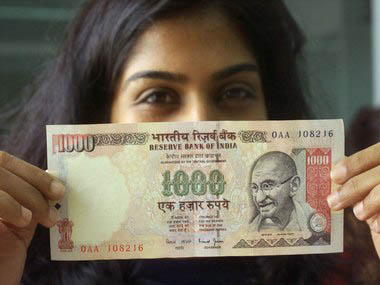The finance minister’s concluding budget speech slipped in an innocuous, but far-reaching, proposal of cutting the withholding tax to 5 percent from 20 percent.
The withholding tax is paid by a foreign bank or lender to the Indian government on the profits it makes by lending to an Indian company. Such a tax is imposed by many countries to discourage too many foreign loans. An influx of foreign loans makes the country’s monetary policy tough to operate. The Reserve Bank of India (RBI) may raise rates to curb inflation, but the resultant difference in domestic and foreign rates will draw more capital and render the monetary policy less effective.
[caption id=“attachment_302051” align=“alignleft” width=“380” caption=“An influx of foreign loans makes the country’s monetary policy tough to operate. Reuters”]  [/caption]
Another possible side-effect is that a corporate sector that’s heavily indebted to foreign lenders can willy nilly impact the country’s standing too. In the immediate aftermath of the Lehman crisis, the Russian rouble fell harder than the rupee despite Russia having twice the reserves India had. Reason: corporate Russia was way more indebted to foreign lenders who were keen to pull out.
Ultimately foreign corporate loans too get added to the country’s external debt and the fact that India’s external debt already comprises more than 43 percent of short-term loans of less than five years’ residual maturity is not a good sign. Permitting more short-term debt at this juncture is hardly wise.
Lastly, the cheaper foreign loans will put pressure on the domestic banking sector which is, in a sense, unfair competition because they are loaded with onerous constraints like statutory liquidity ratios and cash reserve ratios, not to mention compulsory priority sector lending. They will be forced to give up their sound corporate loan accounts to foreign competitors and stick with constituencies like small and medium enterprises which are per se more risky.
What then explains the government’s quiet but decisive step to make foreign loans attractive? The answer perhaps lies in the yawning current account deficit. The effort is to stem the fall of the rupee and the fast dwindling rating of the sovereign which has already been marked negative by Standard and Poors on account of the twin deficits.
But cutting the withholding tax to attract debt flows to bridge the current account deficit is the most myopic strategy. It may bring a flood of short-term debt, but such debt is typically fickle and expensive in the long run if the currency were to depreciate anyway. A more statesman-like response would have been to raise diesel prices and eventually deregulate them. Such a step will make people careful about the use of diesel and thus cut the explosive growth of India’s largest import item, crude. Such a step will also cut the fiscal deficit and will be perceived as healthy for the economy and in turn bring long-term equity capital.
True, that’s a long term step. But in the shorter term the rupee was depreciating to adjust for the rising current account deficit. At close to 54 to the US dollar, the rupee was becoming almost correctly valued versus the currencies of its six major trading partners and over 11 percent undervalued compared to its 36 key trading partners. Such a devaluation will price out some imports and boost some exports and that would be the right way to bridge the current account deficit.
If indeed there is a huge flow of foreign currency loans due to this tax cut, the rupee is sure to rise, and this in turn would make our exports less competitive and imports more attractive, thus widening the trade deficit even more and thence requiring even more capital flows to bridge the gap. Besides such a process of incentivising imports and disincentivising exports only serves to further deindustrialise the country.
China kept its currency artificially depreciated for two decades to help its industry. Don’t we even have the sense to keep our exchange rate somewhat favourably valued in our national interest?
Then in whose interest is the withholding tax and an appreciating rupee? My sense is that big business has seriously lobbied for this unseemly cut in the withholding tax. Big business prefers an appreciating rupee because it makes loans and acquisitions cheaper for them. With respect to the exchange rate, therefore, the national interest and the interests of big business don’t coincide. Unfortunately the government has chosen to side with big business and not the nation.


)
)
)
)
)
)
)
)
)



